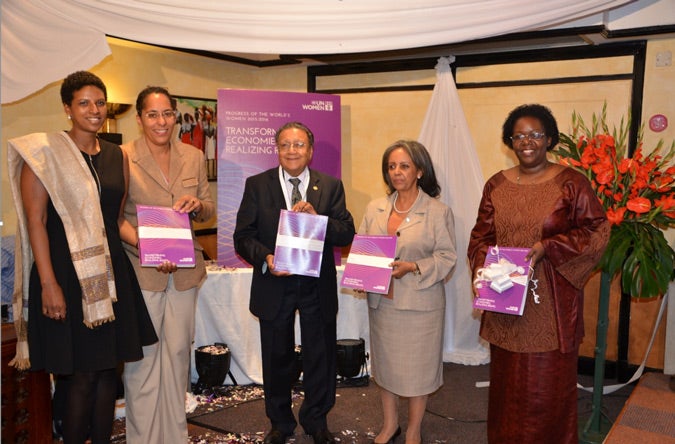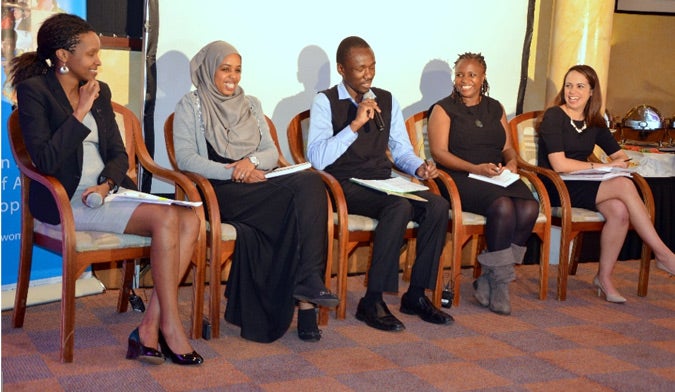Progress of the World’s Women 2015-2016 launched in Nairobi
Date:

The chief guests for the event were Amb Sahle-Work Zewde, UN Under Secretary General and Director General of the United Nations Office in Nairobi (UNON) and Dr. Manu Chandaria, Chairman and Chief Executive Officer of Comcraft. The event was attended by key partners in the government, civil society, NGO’s, private sector, development partners and UN agencies.
Amb. Zewde stressed on the importance with which the United Nations views gender equality and pointed out that the UN Chief Executives Board, chaired by the Secretary-General had agreed on a landmark UN System-wide Action Plan on Gender Equality and the Empowerment of Women.
“ As a result, UN organizations have adopted policies on gender equality and women’s empowerment in corporate strategic planning documents that commit to achieving at least one gender equality objective,” she said.
“In addition, through effectively collaborating together, we have been able to undertake a number of key initiatives as the UN, key among them, the adoption of a Gender Scorecard, which is a globally standardized rapid assessment tool that enables the UN development system to assess how well gender has been mainstreamed through the UN country level joint planning process- otherwise known as the United Nations Development Assistance Framework (UNDAF) cycle,” she added.

Dr. Chandaria noted that it was time to take stock of women’s contributions to development. “Women are critical contributors to economic growth yet most time they are ignored because a lot of the work they do is unpaid labour. Research shows that inequalities persist in the way paid and unpaid work is divided between women and men where women remain the sole caregivers at home, with limited access to resources and this these imbalances slow economic growth,” he said.
UN Women’s Regional Director for Eastern and Southern Africa, Ms Christine Musisi said that globally, only half of women participate in the labour force, compared to three quarters of men. In Sub-Saharan Africa, more than 89 per cent of women’s jobs are informal, unprotected by labour laws and lack social protection, compared to 83 per cent for men. This means that the vast majority of working women and men lack access to decent jobs.
“It is unfortunate that even though Africa’s annual growth rate is 5 per cent, which is above the global average of 3 per cent, it is not generating employment or decent jobs for its population, least of all, for women,” she observed.
A panel discussion on the theme of the report was held as part of the launch event which focused on contextualizing the issues discussed within the report and proposing possible responses. The panelists were Ms Mwende Mwendwa, Economic Analyst at the Presidency, Mr. Kwame Owino, Chief Executive Officer, Institute of Economic Affairs (IEA), Ms Esther Mwaura-Muiru, Founder and Coordinator of GROOTS Kenya, Ms Najma Ismail, International Labour Organisation (ILO) and Ms Ginette Azcona, Research and Data Specialist, UN Women.